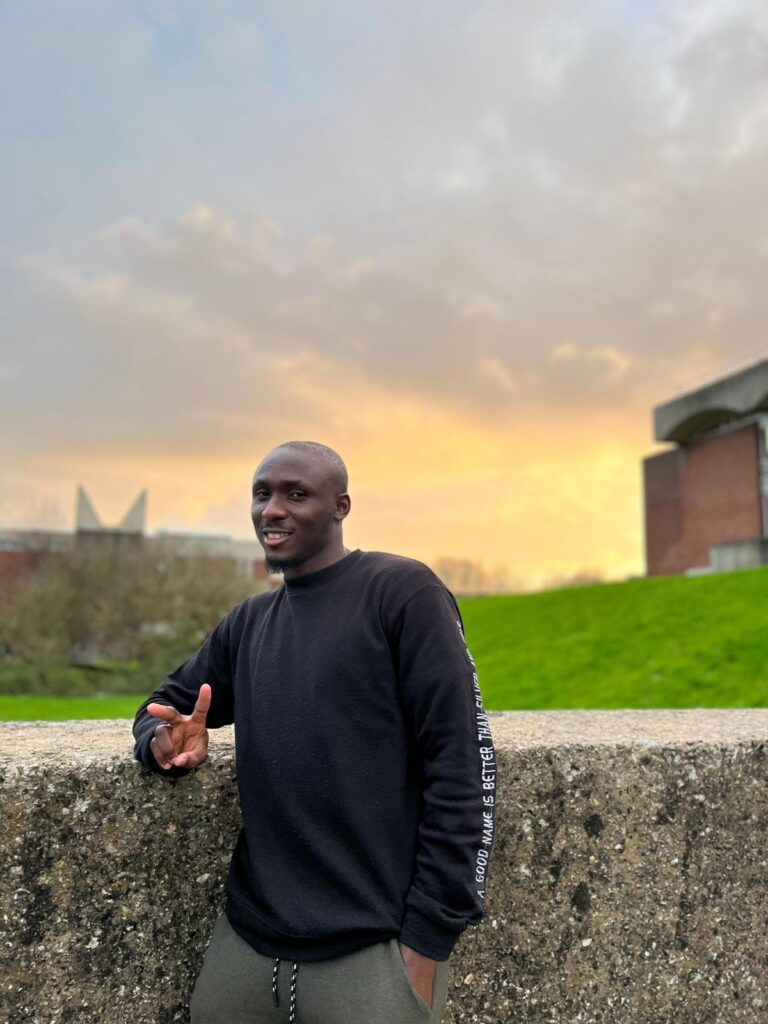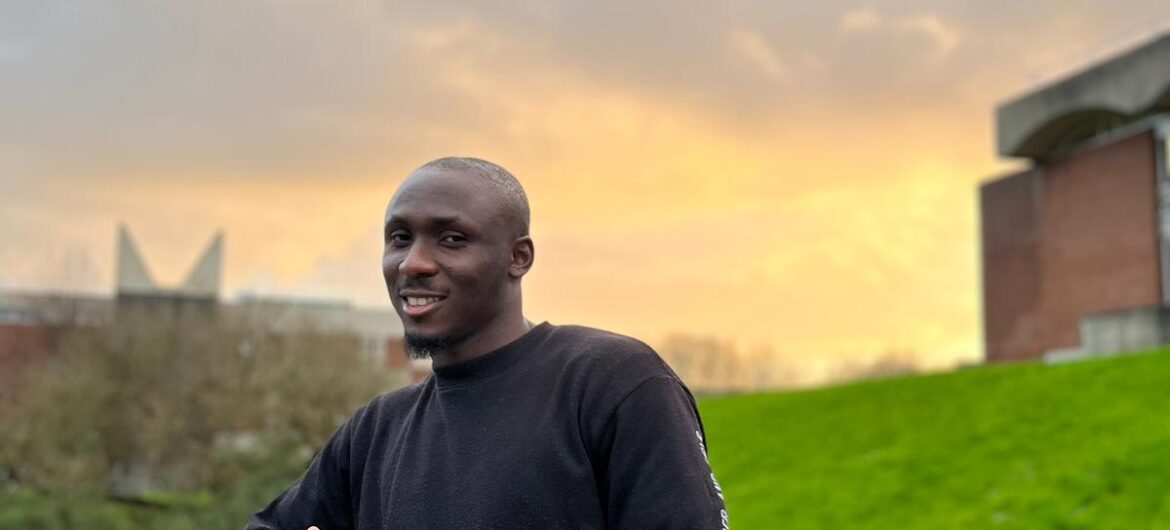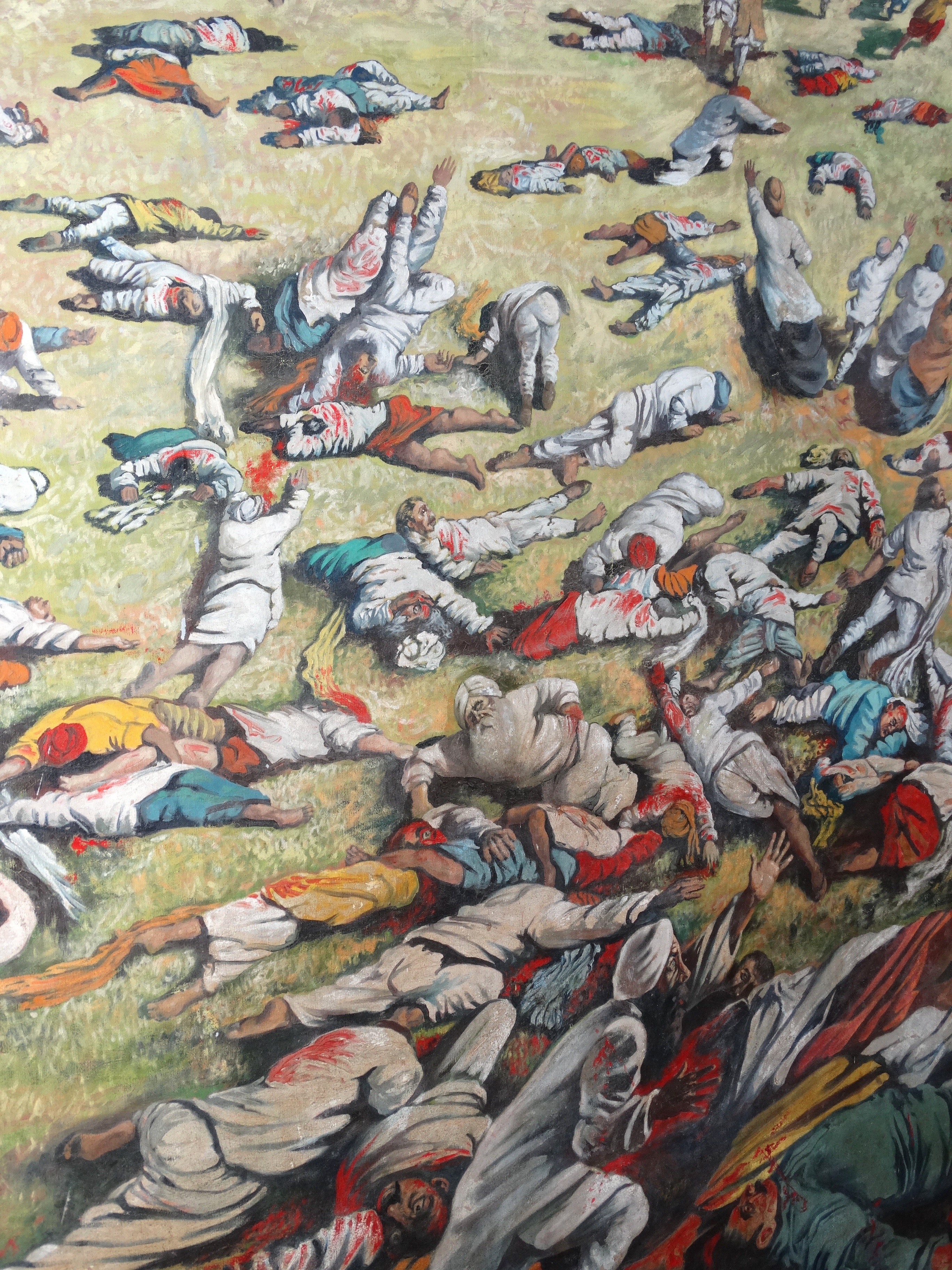Nigerian students are a significant part of the Sussex community. They bring a lovely energy wherever they go on campus or in the city. Oghenechovwe Okolosi (nicknamed OG) has it in abundance. A sustainability lover and accountant, he is also a big-time fan of Bob Marley and reggae music. I recently met him to chat about his campus experiences and activities.
On why most people on campus call him OG, it isn’t his preference. “But I love that ‘OG’ sounds sleek and saves people the stress of pronouncing my name – ‘Oghenechovwe’ correctly. I don’t enjoy seeing people struggle, especially with pronouncing my name.”
Known as the Marley Man on campus, OG has a passion for reggae music and its influence on his living. “It has improved my campus experience in terms of building and maintaining diverse relationships and fostering a peaceful coexistence within the various campus communities I belong to. It has been a bridge to connect with Caribbean students”.
“The message of unity, social justice, and resilience is universal. It is one that people across every race and background can resonate with,” OG said. “You can see how some students have resiliently protested in front of the library, calling for a ceasefire in Gaza. You can see the support it has drawn from diverse backgrounds. I am sure the message from Culture’s World Peace and Bob Marley and the Wailers’ No More Trouble resonate these struggles.”.
As a sustainability enthusiast, OG has been a volunteer of the Food Waste Café. “I have been mainly involved in setting up the weekly stall, attending to donors during stall days, and picking up deliveries from FareShare at the Meeting House”.
“Through its partnership with FareShare, the Food Waste Café helps to address some of the Sustainable Development Goals (SDGs). For instance, food items given for a minimum donation of £0.50 help students get food items cheaply, thereby addressing SDG 2 – Zero Hunger. The model adopted by FareShare with large retailers allows them to get food donations for food items that these retailers would have wasted. These food donations are then distributed to its partners like Food Waste Café. It helps prevent food waste, which releases methane when dumped into landfills, hence helping to reduce greenhouse gas emissions and address SDG 13 – Climate Action,” OG further explained.

In his observation, OG noted that the university can take better steps in representing diverse culinary traditions. “Despite the large population of African students on campus, it is somewhat surprising that the cafés and restaurants do not represent this,” he mentioned. “While I commend the University of Sussex for its immense efforts in empowering a diverse campus, it is quite disappointing not being able to buy jollof rice on campus. Of course, I understand the challenge in terms of the cost. However, I believe there is much the university can do”.
While it has been a struggle to get accustomed to British cuisine, OG found ways to bring the taste of Nigeria here. “I do a lot of cooking. I came with some local spices from Nigeria, and, to be fair, Brighton has some really good African shops. They have been a lifesaver.”
As a sports fan, the Marley Man admired the camaraderie in the local campus community. “The Sussex Chevening community was able to organise a viewing for the final of the African Cup of Nations football tournament hosted by Ivory Coast. The University of Sussex supported us with about £89, which went into prizes for winners of the various prediction categories. In the future, the University can be more proactive in keying into events such as the AFCON to underscore its commitment to diversity further.”
“The banter was crazy in the Chevening Sussex community. I commend the Northfield Bar for consistently televising the matches of the African Cup of Nations, especially during the knockout stage. This just demonstrates Sussex and the Student Union’s commitment to diversity,” OG recalled.
The conversation with OG, opens memories of my early education in Nigeria and how we were made to learn proper pronunciations of foreign names. I feel people should not get uncomfortable when others perceive their names as difficult. Let people make the effort to learn to pronounce names from other cultures.
The food narrative also speaks to me. As a Nigerian, food is not just a form of nourishment, it’s a ritual of identity. We could do with some Jollof rice and Afang soup on campus.




